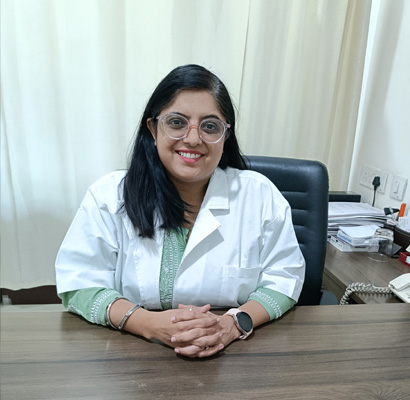Welcome to HealthCity Pathology Department
At HealthCity, we understand the crucial role accurate diagnostics play in your health and well-being. Our Pathology Department is equipped with state-of-the-art technology and a dedicated team of experienced doctors who are committed to providing accurate and timely results for your diagnostic needs. With a focus on precision and patient care, we offer a comprehensive range of pathology services to ensure your health is in trusted hands.
![]()
Pathology at HealthCity
Expert Medical Team
Our pathology department is led by highly experienced and certified doctor, Dr Parul Hans, who is specialized in various fields of pathology. The department works tirelessly to ensure that every test result is analyzed with the utmost care and attention to detail.
Advanced Technology
We leverage the latest technology and equipment to carry out diagnostic tests. Our labs adhere to the highest quality standards to ensure the accuracy and reliability of your test results.
Comprehensive Pathology Services
From routine blood tests to advanced diagnostic screenings, we offer a wide array of pathology services, including:
Quick and Reliable Results:
Our experienced team of doctors and laboratory technicians ensure that test results are processed quickly and accurately, allowing for prompt treatment plans and better outcomes for our patients.
Patient-Centered Care:
We are committed to delivering personalized care. Our doctors and staff take the time to answer your questions, guide you through the testing process, and ensure that you feel comfortable and informed at every step.
Our Services
At HealthCity Pathology, we are proud to offer a wide range of diagnostic services to meet the needs of our diverse patient population. The following are available for the convenience of the patients and for expediting treatment:
Blood Testing
Routine tests, comprehensive panels, and specialized blood investigations to monitor your health and diagnose various conditions.
Urine and Stool Analysis
Essential for diagnosing infections, digestive issues, and kidney function.
Immunology and Allergy Testing
Understanding your immune system and identifying potential allergies that could affect your health.
Cancer Screening and Diagnosis
Early detection is crucial for effective treatment, and our pathologists are skilled in identifying cancerous changes in tissues.
Genetic Testing
Advanced molecular diagnostics to identify genetic predispositions to certain diseases and conditions.
Wellness Panels
Comprehensive tests designed to assess overall health, allowing you to make informed decisions about your lifestyle.
Meet Our Experienced Team
Our Dedicated Consultants for Pathology



